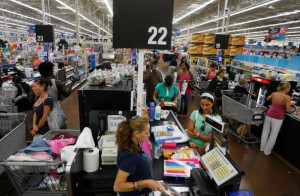After more than five years of austerity and painful reform, Ireland‘s prime minister, Enda Kenny, rightly painted the country’s graduation on Thursday from the IMF/EU bailout as a triumph.
Meanwhile, the ECB is about to start combing through the books of the eurozone’s banks – before any clear answer will emerge about who will fill any holes. And that is at the same time as the region’s economies slide towards deflation, which is toxic for heavily indebted countries. It is too soon to declare that permanent peace has broken out in eurozone financial markets.
Ireland may have a very creditable €20bn (£16.7bn) in the bank, but that’s the kind of sum that could quickly evaporate in the event of a renewed market crisis, which need not be of Ireland’s making for the country to still be hit by the fallout.
The decision on Thursday may come to be remembered as the beginning of the end of the crisis – but the Irish will need plenty of luck still.

